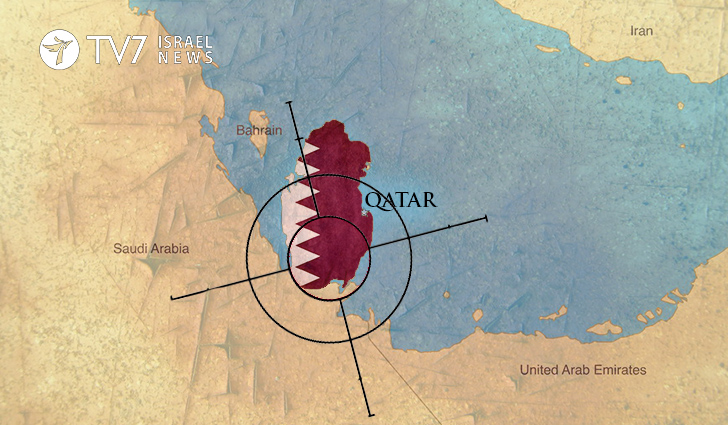The rift between Qatar and regional Arab powers, including Saudi Arabia, Egypt, Bahrain and the United Arab Emirates continues to deteriorate. Following more than a week since the four Arab states announced their coordinated decision to severe ties with Qatar, Doha continues to reject all allegations against it, while declaring its keen interest in negotiating an end to the crisis.
“We have no interest in the existence of tension in particular between Saudi Arabia and the United Arab Emirates on the one side and Qatar on the other side and mainly between the countries involved in this. First, because we hope that the Gulf remains calm and stable and because these states are involved in other crises, we know, in Syria and Libya. We should succeed in combining our interests. We are aware of the differences in sensitivities and in interests. This should not reach an escalation,” said Emanuel Macron, French President.
As international concerns mount with regard to the regional crisis, considering the fact that both the United Arab Emirates and Qatar serve as launching pads for US-backed fighter-jets in the battle against the Islamic State; Western countries, including the United States, Germany and France have increased their effort in alleviating the situation. French President Emmanuel Macron, during his first state visit to Morocco since taking office, said the rift between Qatar and its Gulf neighbors “should not be allowed to escalate.”
“We in Qatar are prepared to engage in dialogue positively, but in accordance with the international norms and standards that govern any dialogue as per international law,” said Sheikh Mohammed bin Abdulrahman al-Thani, Qatari Foreign Minister.
Saudi Foreign Minister Adel Al-Jubeir said his country was ready to provide food and medical aid to Qatar, if need be, as he met with his American counterpart, Rex Tillerson. Jubeir also took the opportunity to defend his country’s move against the gas-rich emirate as a boycott rather than a blockade, saying his government was exercising its “sovereign right.”
“There is no blockade of Qatar. Qatar is free to go — the ports are open, the airports are open. What we have done is we have denied them use of our air space, and this is our sovereign right. The limitation on the use of Saudi air space is only limited to Qatari Airways or Qatari owned aircraft, not anybody else. The sea ports of Qatar are open. There is no blockade on them. Qatar can move goods in and out whenever they want, they just cannot use our territorial waters, so technically this is not a blockade. We have exercised our sovereign right to prohibit them from using our air space. We have allowed the movement of families between the two countries to happen so that we don’t divide families. And we are prepared to provide Qatar with food and medical supplies should they need this through the King Salman Center,” said Al-Jubeir.
